Installation, upkeep, and repair of plumbing systems in industrial environments fall within the purview of industrial plumbing, a subfield of plumbing. Water, trash, and other materials needed in industrial operations can be handled in enormous quantities by industrial plumbing systems.
Plumbing systems are essential to maintaining a safe and hygienic working environment in an industrial facility and guaranteeing seamless operations. Pipes, valves, pumps, fixtures, and control systems are just a few of the many components found in these systems, all of which are specially made to cater to the particular requirements of industrial processes. Industrial facilities’ safe and effective functioning depends on their industrial plumbing systems, which must be installed and maintained with special knowledge and skill.
4 Types of Industrial Plumbing Systems
Industrial plumbing systems come in a variety of types, each designed for prospective applications and processes. Some of the most prevalent types of industrial plumbing systems are listed below:
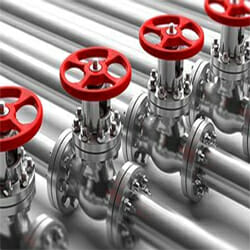
2. Fire Suppression Systems: To swiftly and efficiently put out flames, industrial buildings need specialised fire suppression systems. These systems normally work automatically in the event of a fire and employ a combination of water, foam, and chemicals to put out fires.
3. Water Treatment Systems: Industrial water treatment systems are created to treat and filter water utilised in industrial processes. These systems, which can use techniques including filtration, reverse osmosis, and disinfection, remove pollutants and toxins from water.
4. Systems for managing trash: Industrial operations generate an enormous amount of waste, both hazardous and non-hazardous. Trash is collected, handled, and disposed of in an environmentally friendly manner using waste management systems.
To effectively design, install, and maintain these plumbing systems, particular knowledge, and expertise are needed. In addition to ensuring that the plumbing system is established and maintained properly, a qualified industrial plumber may assist in determining the best plumbing system suitable for a particular industrial application.
Components of an Industrial Plumbing System
The safe and effective operation of an industrial plumbing system is dependent on a variety of different components, each of which is essential. Some of the most typical elements of an industrial plumbing system are listed below:
The most fundamental element of any plumbing system, including industrial plumbing systems, are pipes. Fluids and gases are transported through pipes, which are made of different materials like copper, steel, and plastic.
- The employment of valves in the plumbing system allows for the regulation of the flow of both liquids and gases. They are available in multiple varieties, such as gate valves, ball valves, and globe valves, and can be used to stop, start, or alter the flow of fluids.
- Fixtures are the plumbing system’s final locations for the usage and disposal of fluids and gases. These consist of showers, sinks, toilets, and faucets.
- Backflow prevention devices are used to stop contaminated water from recirculating through the plumbing system. Many industrial operations are required by law to maintain a safe and hygienic water supply.
To guarantee the plumbing system is operating properly, each part needs to be carefully chosen and fitted. A qualified industrial plumber can advise on the best parts for a given application and make sure they are fitted and maintained properly.
Maintenance and Repair Services
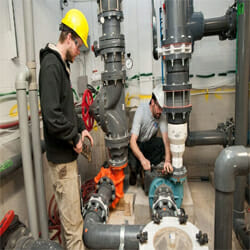
Industrial plumbing systems are susceptible to sediment and debris buildup over time. To clear these obstructions and ensure appropriate flow, an industrial plumber can provide cleaning and flushing services.
To maintain safety and environmental protection, industrial plumbing systems must adhere to several laws and standards. To make sure that the plumbing system complies with these criteria, an industrial plumber can provide compliance testing services.
An industrial plumber can offer repairs or replacement services when a plumbing component breaks or is damaged. This can involve both repairing and replacing pipes, valves, pumps and fixtures, and control systems.
To ensure the safe and effective operation of an industrial plumbing system, routine maintenance, and prompt repairs are extremely important. A qualified industrial plumber can offer the required services to maintain the plumbing system in top shape and reduce the likelihood of expensive breakdowns and associated risks.
Industrial Plumbing Applications
Applications for industrial plumbing are numerous, ranging from manufacturing and processing to healthcare and hospitality. Some of the most typical industrial plumbing uses are listed below:
Industrial plumbing is crucial for moving the gases and fluids required in production in the manufacturing and processing sectors. This can involve the manufacturing of pharmaceuticals, food and beverage production, and chemical processing.
- Heating, ventilation, and air conditioning (HVAC) systems use industrial plumbing to carry water and air. This can involve regulating temperatures and enhancing interior air quality by using cooling towers, pumps, and piping.
- Industrial plumbing is utilised to supply water and other extinguishing chemicals to fire protection systems. Sprinkler systems, standpipes, and fire hydrants are examples of this.
- Delivering clean water, eliminating trash, and preventing infections all depend on industrial plumbing in hospitals and healthcare facilities. Using specialised fixtures, backflow preventers, and water treatment systems are a few examples of how to do this.
- Hotels, eateries, and other hospitality and food service applications use industrial plumbing to manage waste and provide clean water. The use of specialist fixtures, grease traps, and dishwashers are a few examples of this.
To effectively design and install any of these industrial plumbing applications, particular knowledge, and expertise are needed. Choosing the right plumbing system for a specific purpose and ensuring that it is installed and maintained properly can both be assisted by a qualified industrial plumber.
Industrial Plumbing Standards and Regulations
Many standards and laws that are intended to assure safety, safeguard the environment, and promote efficiency apply to industrial plumbing systems. The National Fire Protection Association (NFPA), the International Plumbing Code (IPC), the Environmental Protection Agency (EPA), and the American Society of Heating, Refrigerating, and Air-Conditioning Engineers (ASHRAE)are some of the most significant standards and regulations that govern industrial plumbing.
For industrial plumbing systems to be safe and effective, compliance with these standards and laws is crucial. These rules and regulations should be thoroughly understood by an industrial plumber who will also make sure that the plumbing system complies with all pertinent criteria.
Industrial Plumbing Challenges and Solutions
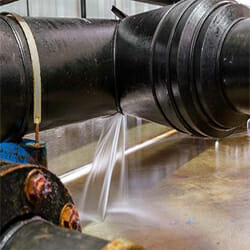
Industrial plumbers need particular knowledge and ability to meet these issues. They must be able to construct intricate systems that can endure extreme pressures and environmental challenges. To avoid system breakdowns and save downtime, they must also be able to perform timely maintenance.
To make sure that the plumbing system is reliable, effective, and consistent with all relevant requirements, industrial plumbers must also keep up with the most recent regulations and technological advancements. Businesses can overcome these difficulties and ensure the proper functioning of their plumbing system by consulting with a qualified industrial plumber.
Conclusion
Industrial plumbing is essential to a wide range of sectors, including manufacturing, processing, healthcare, and hospitality. Complex plumbing systems that carry fluids and gases used in manufacturing, regulate temperatures, and handle waste are designed, installed, maintained, and repaired as part of this process.
High-pressure systems, hostile environments, and adherence to safety and environmental requirements are just a few of the particular issues that industrial plumbing poses. Businesses must collaborate with a qualified industrial plumber with specialised knowledge and expertise in industrial plumbing systems to overcome these difficulties.
Also, they must make sure that their plumbing systems are secure, effective, and comply with all relevant standards and laws by hiring a qualified plumber. Long-term, this may lead to significant cost savings, decreased downtime, and improved productivity.
Call Damien McEvoy Plumbing at (02) 8599 4593 for any plumbing inquiries!

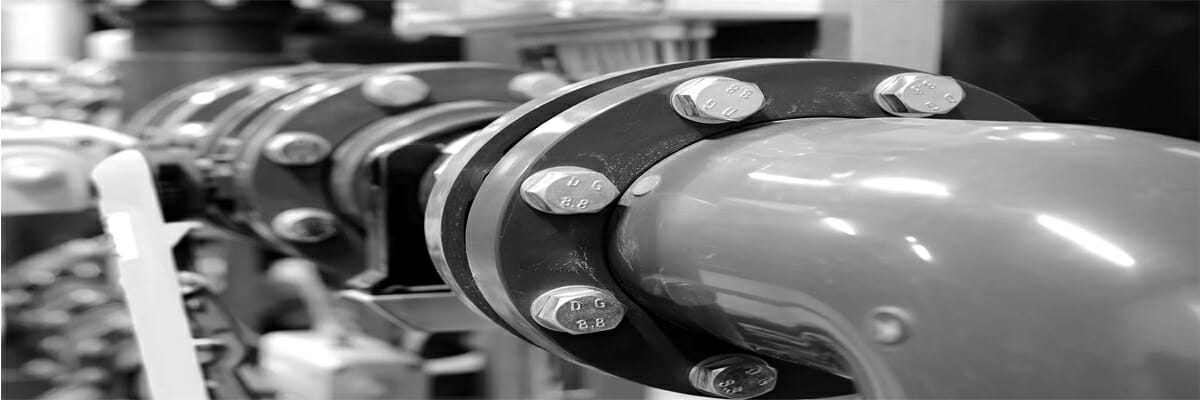
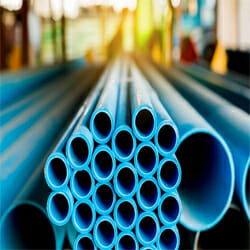 The most fundamental element of any plumbing system, including industrial plumbing systems, are pipes. Fluids and gases are transported through pipes, which are made of different materials like copper, steel, and plastic.
The most fundamental element of any plumbing system, including industrial plumbing systems, are pipes. Fluids and gases are transported through pipes, which are made of different materials like copper, steel, and plastic.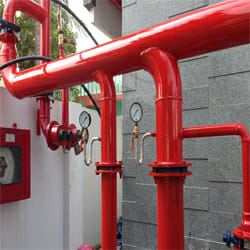 Industrial plumbing
Industrial plumbing  Enquire
Enquire